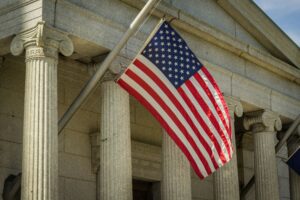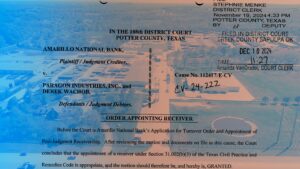By Brian Patrick
Lost in the calm explosiveness of Monday, December 8, 1941 is a promise that has been kept true over the 79 years since a calmly defiant President Franklin Roosevelt stood before a joint session of congress and succinctly requested a war declaration against Japan.
In the breathless minutes immediately before the physically hobbled Commander in Chief of our nation’s armed forces stood imposingly before the world as few before or since had, time had frozen in the wake of the previous day’s events half a world away. A nation still reeling from a sucker punch delivered by a tyranny that had well-established a reign of terror in China and numerous other Japanese-occupied lands paused in uncertain anticipation of how its leader might respond.
President Roosevelt’s opening sentence in his brief remarks before the often-antagonistic legislative body had the effect of a cannon barrage. There was no mistaking where the narrative was leading. The Day of Infamy, as the president forever and perfectly tagged the previous day, had brought a nation still digging out from the Great Depression face to face with an assault against its very existence. This was not a “European war” as the previous, so-called Great War had been often considered. This was a fight for life or death. For freedom or enslavement. For self sufficiency or submission. It was an all or nothing proposition, and even the president’s most vocal critics could not dispute his assessment.
The speech President Roosevelt delivered on that Monday of Mondays has been called the Day of Infamy Speech. Given various leaders’ and journalists’ misplaced lust to find a day or event to warrant a re-warm of that singularly-iconic phrase, it is easy to see how its imposing status has maintained its mystique. With the throbbing urgency, intensity, and passions of that transcendent late autumn, the infamy of that moment and time has entertained no peers.
But buried inside that speech is a line that the infamous nature of that heady day, without exception, swallows. “I believe that I interpret the will of the congress and of the people when I assert that we will not only defend ourselves to the uttermost, but will make it very certain that this form of treachery shall never again endanger us,” Roosevelt declared.
With the United States’ involvement in the conflict that came to be known as World War II still a blank page, those who heard that statement on that bleak Monday would be forgiven in glossing over its promise. At a distance of 79 years, it rings just as clear and profound as the infamy that necessitated the speech. Indeed, that particular form of treachery has never again endangered us.
The ears that heard that speech live could never have dreamt that the technology and science born over the following few years would make for a situation in which a superpower would attack another superpower only at the risk of radioactive suicide. The years since American science and technology brought the world the atomic bombs that decisively and finally ended Japan’s terror bear witness to the fact that no world power has attacked the home soil…or water…of another world power.
With the Day of Infamy and President Roosevelt’s response fading into a foreboding intellectual dark age, it is incumbent upon us, the inheritors of that kept promise, to acknowledge it for the statement of faith and hope in not only the World War II generation, but for all that have so far followed, that it truly is.









